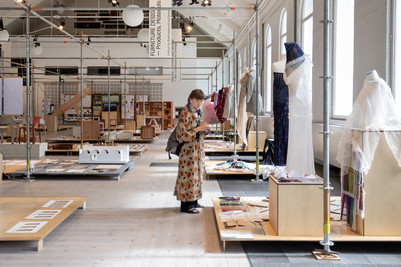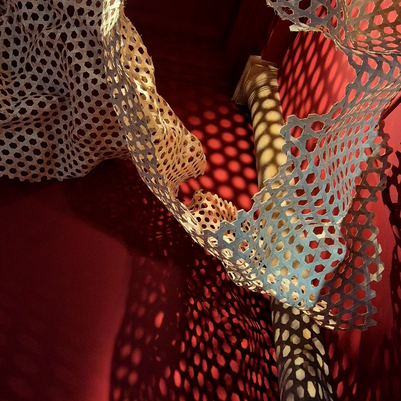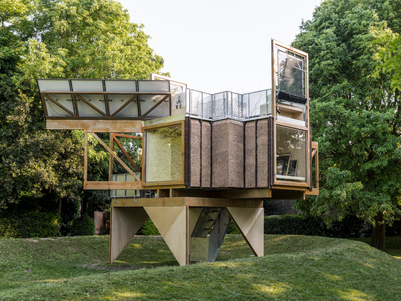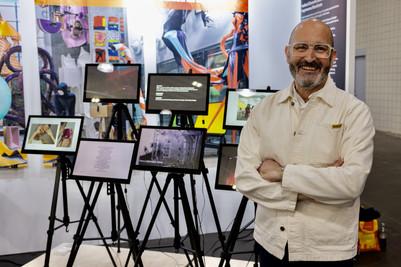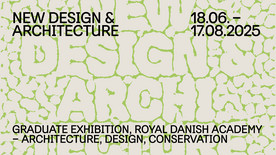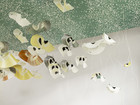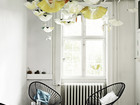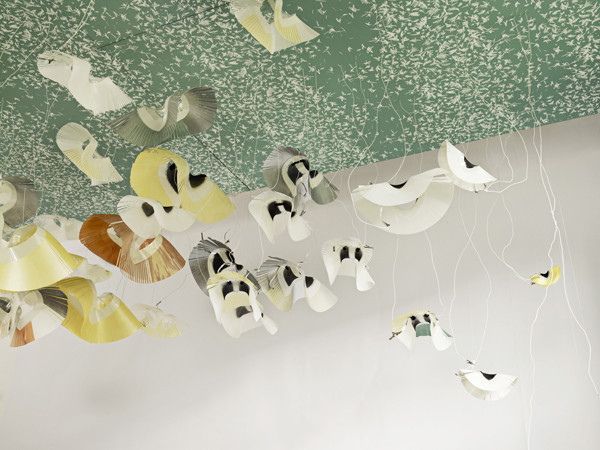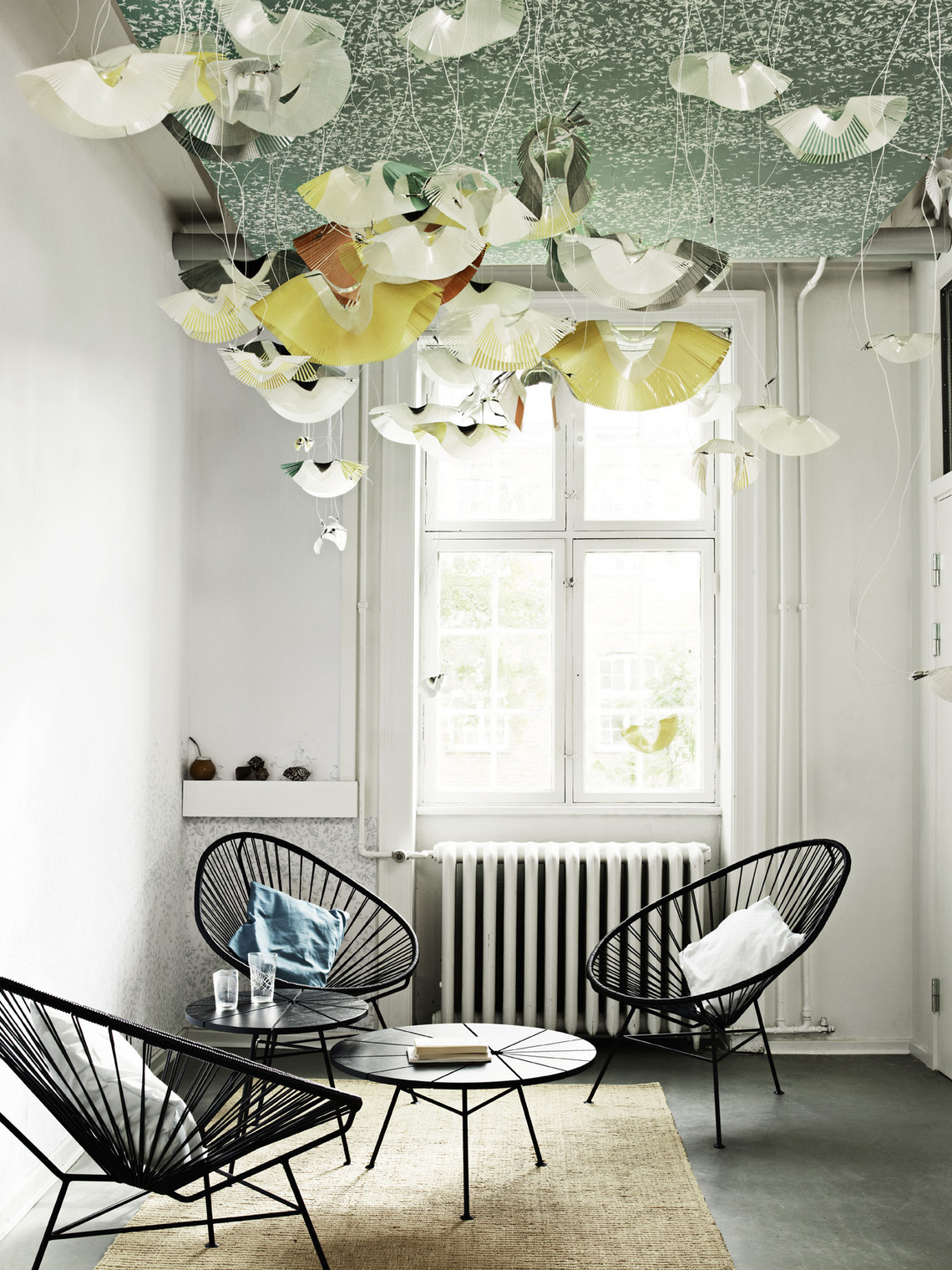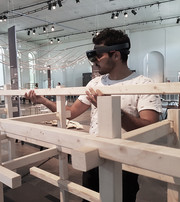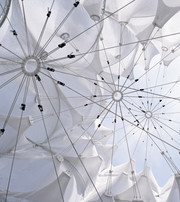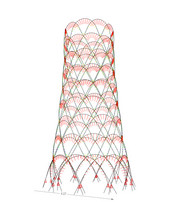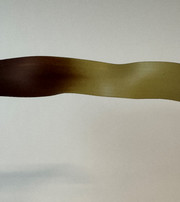
Aurélie Mossé: Gossamer Timescapes - Designing Self-Actuated Textiles for the Home
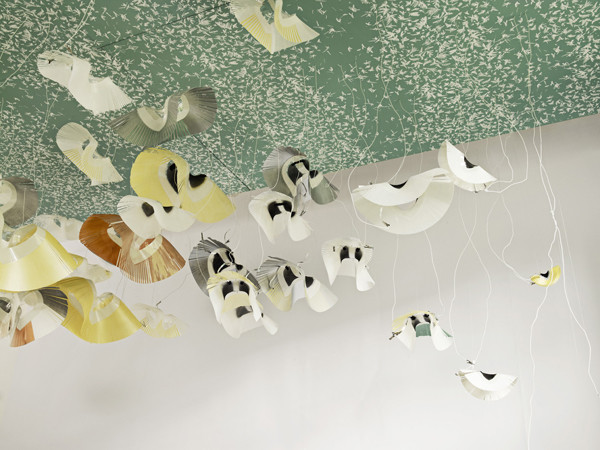
Gossamer Timescapes - Designing Self-Actuated Textiles for the Home
A PhD project by Aurélie Mossé, MA Design for Textile Futures.
In collaboration with TFRG, Central St Martins, University of the Arts, London.
Gossamer timescapes, a practice-based and design-led PhD sitting at the intersection of textile design, architecture and smart technologies, explores how self-actuated textiles can inform new poetical and cultural possibilities for smart technologies in the field of design. The research focuses on the role three-dimensionally dynamic textiles can play in contributing to the shaping a culture of interconnectivity within the context of the Western home.
The thesis explores the following hypothesis. By relocating the design of smart materials beyond a culture of the measured time and space -where technology has been primarily conceived as a mean to control and overcome the limitations imposed by nature-, self-actuated textiles can contribute to more resilient practices of inhabitation. To do so, the thesis argues for the need to underpin the design of smart materials and technologies by principles of interconnectivity- interactions grounded in an earth-bound temporality in which technology is less conceived as a user-oriented than an earth-life centered means. In other words, self-actuated textiles, by challenging the thinking and making of the post-modern western home as a reality disconnected from nature, can contribute to the design of more sustainable practices of inhabitation.
Building upon the construction of a theoretical framework in which the question of time is placed as the centre of the inquiry, this thesis unfolds its argument through the interplay of theoretical discussions and commentaries on design works developed simultaneously throughout the research project. Central elements of this argumentation include: a discussion on the role of design as a cultural process for appropriating technology, a review of the cultural appropriation of the home from the Industrial Revolution until now, a perspective on the influence of technology on the perception of time as a social construct, a state of the art of the main smart technologies able to support the design of self-actuated textiles. A series of design experiments into the appropriation of photovoltaic, light-responsive and electro-active polymer technologies contextualise and support this discussion.
These experiments are structured in a series of conceptual, material and immersive probes developed from a material tale methodology mixing fragments of reality and fiction to explore the poetic and cultural potential of smart technologies. These probes evolved in dialogue with each other and simultaneously with the construction of the theoretical framework of this thesis. They are part of the same design process. Reef – an experiment into the design of a self-actuated ceiling surface changing with the wind underpinned by electro-active polymers - plays a prominent role in the construction of the thesis’ argument by investigating the appropriation of values of interconnectivity into smart domestic surfaces.
The outcome of this research lies in the construction of a conceptual framework for the design and appropriation of smart textiles supporting principles of interconnectivity and their translation into emergent smart technologies within an architectural context.




